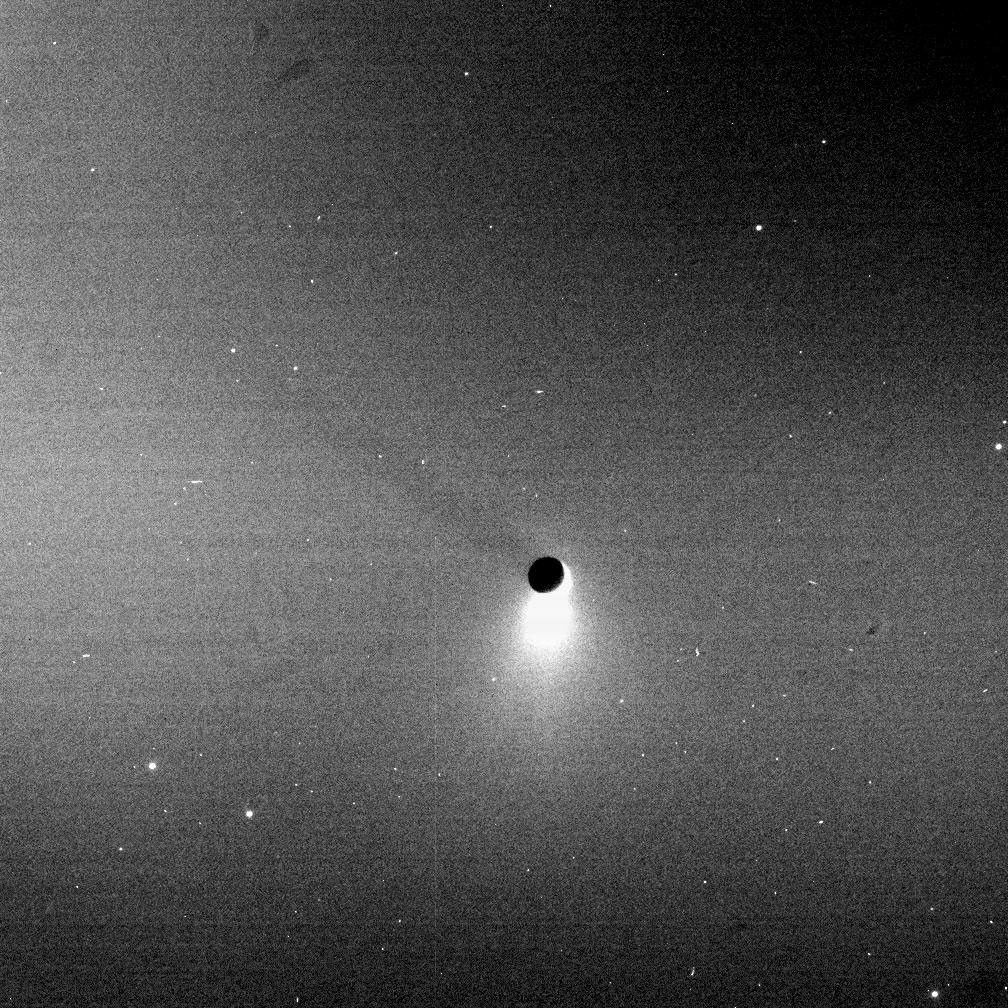Casting a Shadow
| PIA Number | PIA08921 |
|---|---|
| Language |
|
Blazing like an icy torch, the plume of Enceladus shines in scattered sunlight as the moon casts a shadow onto Saturn's E ring. Some of the tiny ice particles erupted from the moon's south polar region go into Saturn orbit, forming the doughnut-shaped ring, onto which the moon's shadow is cast in this view.
The shadow of Enceladus (505 kilometers, or 314 miles across) stretches away to the upper left at around the 10 o'clock position. The Sun-Enceladus-spacecraft, or phase, angle is 164 degrees here, with the Sun being located toward the lower right. This means that Enceladus' shadow extends toward the Cassini spacecraft -- through part of the E ring.
Some of the bright dots in this heavily processed view are background stars. Others are due to cosmic ray hits on the camera detector.
The image was taken in visible light with the Cassini spacecraft narrow-angle camera on Aug. 11, 2006 at a distance of approximately 2.2 million kilometers (1.3 million miles) from Enceladus. Image scale is 13 kilometers (8 miles) per pixel.
The Cassini-Huygens mission is a cooperative project of NASA, the European Space Agency and the Italian Space Agency. The Jet Propulsion Laboratory, a division of the California Institute of Technology in Pasadena, manages the mission for NASA's Science Mission Directorate, Washington, D.C. The Cassini orbiter and its two onboard cameras were designed, developed and assembled at JPL. The imaging operations center is based at the Space Science Institute in Boulder, Colo.
For more information about the Cassini-Huygens mission visit http://saturn.jpl.nasa.gov . The Cassini imaging team homepage is at http://ciclops.org .
Credit: NASA/JPL/Space Science Institute


























